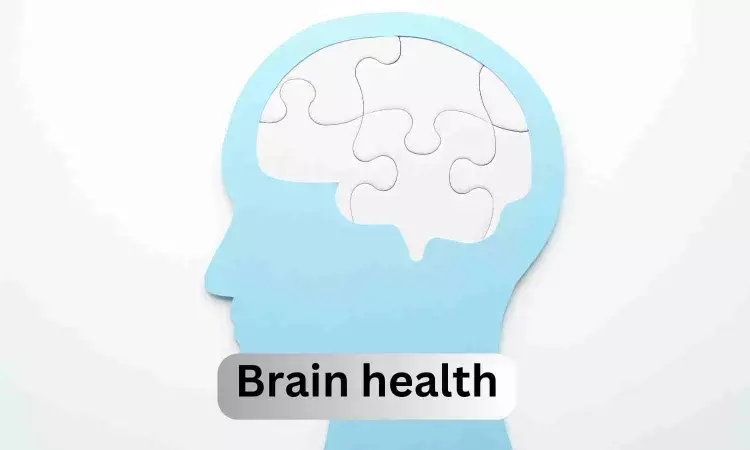- Home
- Medical news & Guidelines
- Anesthesiology
- Cardiology and CTVS
- Critical Care
- Dentistry
- Dermatology
- Diabetes and Endocrinology
- ENT
- Gastroenterology
- Medicine
- Nephrology
- Neurology
- Obstretics-Gynaecology
- Oncology
- Ophthalmology
- Orthopaedics
- Pediatrics-Neonatology
- Psychiatry
- Pulmonology
- Radiology
- Surgery
- Urology
- Laboratory Medicine
- Diet
- Nursing
- Paramedical
- Physiotherapy
- Health news
- Fact Check
- Bone Health Fact Check
- Brain Health Fact Check
- Cancer Related Fact Check
- Child Care Fact Check
- Dental and oral health fact check
- Diabetes and metabolic health fact check
- Diet and Nutrition Fact Check
- Eye and ENT Care Fact Check
- Fitness fact check
- Gut health fact check
- Heart health fact check
- Kidney health fact check
- Medical education fact check
- Men's health fact check
- Respiratory fact check
- Skin and hair care fact check
- Vaccine and Immunization fact check
- Women's health fact check
- AYUSH
- State News
- Andaman and Nicobar Islands
- Andhra Pradesh
- Arunachal Pradesh
- Assam
- Bihar
- Chandigarh
- Chattisgarh
- Dadra and Nagar Haveli
- Daman and Diu
- Delhi
- Goa
- Gujarat
- Haryana
- Himachal Pradesh
- Jammu & Kashmir
- Jharkhand
- Karnataka
- Kerala
- Ladakh
- Lakshadweep
- Madhya Pradesh
- Maharashtra
- Manipur
- Meghalaya
- Mizoram
- Nagaland
- Odisha
- Puducherry
- Punjab
- Rajasthan
- Sikkim
- Tamil Nadu
- Telangana
- Tripura
- Uttar Pradesh
- Uttrakhand
- West Bengal
- Medical Education
- Industry
Playing an instrument linked to better brain health in older adults

Engaging in music throughout your life is associated with better brain health in older age, according to a new study published by experts at the University of Exeter.
Scientists working on PROTECT, an online study open to people aged 40 and over, reviewed data from more than a thousand adults over the age of 40 to see the effect of playing a musical instrument-or singing in a choir-on brain health. Over 25000 people have signed up for the PROTECT study, which has been running for 10 years.
The team reviewed participants’ musical experience and lifetime exposure to music, alongside results of cognitive testing, to determine whether musicality helps to keep the brain sharp in later life.
The findings show that playing a musical instrument, particularly the piano, is linked to improved memory and the ability to solve complex tasks - known as executive function. Continuing to play into later life provides even greater benefit. The work also suggests that singing was also linked to better brain health, although this may also be due to the social factors of being part of a choir or group.
Anne Corbett, Professor of Dementia Research at the University of Exeter said: “A number of studies have looked at the effect of music on brain health. Our PROTECT study has given us a unique opportunity to explore the relationship between cognitive performance and music in a large cohort of older adults. Overall, we think that being musical could be a way of harnessing the brain’s agility and resilience, known as cognitive reserve.”
“Although more research is needed to investigate this relationship, our findings indicate that promoting musical education would be a valuable part of public health initiatives to promote a protective lifestyle for brain health, as would encouraging older adults to return to music in later life. There is considerable evidence for the benefit of music group activities for individuals with dementia, and this approach could be extended as part of a healthy ageing package for older adults to enable them to proactively reduce their risk and to promote brain health.”
Stuart Douglas, a 78-year-old accordion player from Cornwall, has played the instrument throughout his life and now plays with the Cober Valley Accordion Band as well as the Cornish Division of the Royal Scottish Country Dance Society. He said: “I learnt to play the accordion as a boy living in a mining village in Fife and carried on throughout my career in the police force and beyond. These days I still play regularly, and playing in the band also keeps my calendar full, as we often perform in public. We regularly play at memory cafes so have seen the effect that our music has on people with memory loss, and as older musicians ourselves we have no doubt that continuing with music into older age has played an important role in keeping our brains healthy.”
Dr Kamal Kant Kohli-MBBS, DTCD- a chest specialist with more than 30 years of practice and a flair for writing clinical articles, Dr Kamal Kant Kohli joined Medical Dialogues as a Chief Editor of Medical News. Besides writing articles, as an editor, he proofreads and verifies all the medical content published on Medical Dialogues including those coming from journals, studies,medical conferences,guidelines etc. Email: drkohli@medicaldialogues.in. Contact no. 011-43720751


